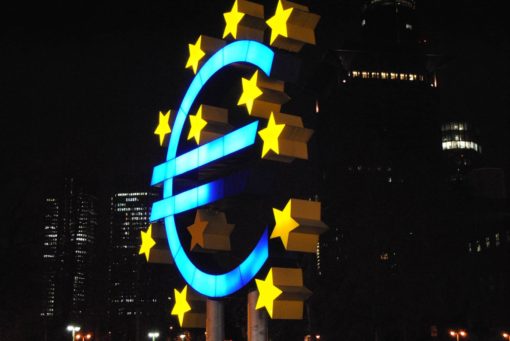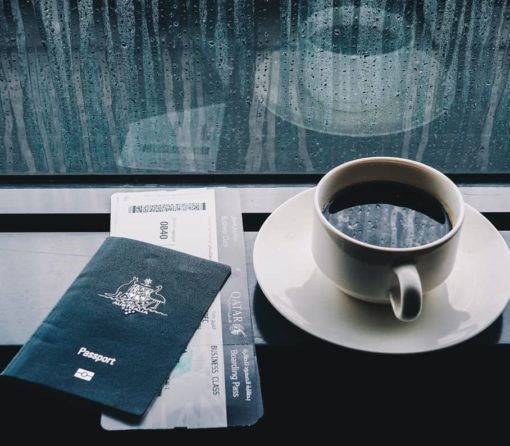People travel to the Schengen Countries for a variety of purposes.
Some of them are eager to visit the top-rated tourist attractions in Europe or their families, while others have the sole purpose of doing business.
If you’re one of those people willing to leverage the European market, this is the right guide for you.
We will share in this post everything you need to know about your Schengen Business Visa application process.
The Schengen Area includes one of the world’s wealthiest countries. All Member States are a huge market that gives you access to goods, services, suppliers, and other professional opportunities.
In other words, conducting business in the European Union’s market is a powerful way to gain a foothold and acquire new professional skills.
Table of contents:
- Schengen Visa for business purposes: General information
- Business Schengen Visa: Requirements & Application process
1. Schengen Visa For Business Purposes: General Information

Before sharing comprehensive details concerning your Business Schengen Visa application process, it is important to point out that this Visa type enables you to spend up to 90 days over a 180-day period in the Schengen Area (and get a short-stay Schengen Visa).
Therefore, a Schengen Business Visa does not suit you if you’re willing to relocate and start a business in Europe (because a Business Visa does not give you the right to work in the Schengen Area in the long term).
If you need to spend more than 90 days over a 180-day period in the Schengen Area and get an EU visa valid for work purposes, you should apply for a type-D National Visa.
Thus, the difference between Schengen Visa types lies in the duration of stay (type-C Schengen Visas enable non-EU nationals to spend up to 90 days in the Schengen Territory while type-D national Visas enable them to spend more than 90 days in Europe).
A Business Schengen Visa is suitable for you if you’re travelling to the Schengen Area for one of the following purposes (whether you are employed or self-employed):
- Business meetings
- Exhibitions or trade fairs
- Business instruction or technical courses
- Courses organised by a Schengen company for its employees working abroad
- Scientific or economic events, international conferences, seminars, or symposiums
Some Schengen Embassies and Consulates may also issue a Business Visa for applicants participating in cultural, sport, or religious events.
As far as the Schengen Visa policy is concerned, there is no difference between a Tourist and a Business Schengen Visa (meaning that both of them allow you to spend up to 90 days in the Schengen Area).
The only difference is that the Embassy officers will write “tourism” or “business” on your Schengen Visa sticker as your trip’s primary purpose.
Even though you are travelling for business purposes, you can spend a few days more in the Schengen Area to visit the best tourist attractions and experience the local culture and cuisine.
However, in this case, you must provide a day-to-day travel itinerary indicating the places and tourist attractions you plan on visiting.
2. Business Schengen Visa: Requirements & Application Process

Below you will find the complete list of documents required when applying for a Schengen Business Visa.
However, please note that Embassies and Consulates may ask for additional documents depending on the business activities you will be conducting in the Schengen Zone.
For example, if you plan on participating in a trade fair, you may need to submit your trade fair entry ticket (outside of the documents listed below).
As a general rule, you must submit as many documents as possible to prove your travel purpose is genuine.
| ● One Visa application form fully completed and signed (you must indicate “business” as your journey’s primary purpose in the application form). |
| ● Two recent photos (for further details, please check our Schengen Visa photo requirements guide) |
| ● Valid passport not older than ten years and with at least two blank pages Your passport must be valid for at least three more months beyond your departure from the Schengen Area. |
| ● Older passports with Schengen Visas on them (if applicable) |
| ● Round-trip flight reservations of bookings |
| ● Schengen Travel Health Insurance Your travel insurance must have 30,000 euros minimum coverage (for medical emergency). |
| ● Proof of accommodation, such as: ◦ Hotel reservations or bookings ◦ Rental agreement confirming that you have rented a room or apartment in a Schengen country Note: If you are employed, and your company will pay for your accommodation, they must mention it in your letter of invitation |
| ● Proof of financial status, such as: ◦ Your bank account statements for the last 3-6 months showing you have a specific amount of money available for each day you spend within the Schengen Area (for more details, please check our financial means test) ◦ A sponsorship letter from a company (whether it is located in your country of residence or a Schengen country) stating they will cover all of your expenses during your trip to the Schengen Area Note: If a company is sponsoring your trip, you must also submit copies of the company’s business bank statements for the last 3-6 months. |
| ● Cover letter explaining the purpose of your visit to the Schengen Territory The cover letter must be written by a company and outline relevant details concerning your trip. |
| ● Proof of paid Visa fee |
| ● Civil status proof (e.g., a marriage certificate – if applicable) |
| ● Utility bill as proof of address (only if the utility bill is under your name) |
| ● Certified passport copy |
| ● Certified birth certificate copy |
| ● If you are employed, you must prove that you have contractual obligations in your country by submitting: ◦ Employment contract ◦ Leave permission from the employer ◦ Payslips for the last 3-6 months ◦ No Objection Certificate (NOC) Letter from Employer ◦ Certificate of Employment (COE) ◦ Personal Income Tax Return (ITR) |
| ● If you are self-employed, you must submit: ◦ Business Registration Certificate ◦ Business license ◦ Business Income Certificates ◦ Company Bank Statements for the last 3-6 months ◦ Company Income Tax Return |
| ● Copies of all documents |
| ● Invitation letter written by the inviting company or organisation located in the Schengen Area Your invitation letter must be faxed to the Embassy where you are submitting your application. The invitation letter must include a detailed program of your business trip. The letter must also indicate who will cover the costs of travel, food, and accommodation during your trip to the Schengen Area. |
| ● Evidence of previous trade relations between the two companies (if applicable) Although this document is optional for some Embassies, we recommend submitting it as additional evidence of your travel purpose. Thus, you can submit proof of prior business events that gathered both companies’ representatives (the company that invited you to the Schengen Area and the company you work for located in your country of residence). |
| ● Schengen company’s registration certificate Some Embassies may require a copy of the inviting company’s business registration certificate. Even though this document is not mandatory for all Embassies, we still recommend you submit it. You can also submit a copy of the registration certificate of the company you work for that is located in your country of residence (if applicable). |
Important note: In rare situations, the Embassy may also request your criminal record when applying for a Business Schengen Visa (such as the Embassy of Greece in Nigeria).

Below you will find a brief description of the steps you must follow to apply for a Business Schengen Visa (for detailed information about the Schengen Visa application process, please visit this post).
➢ Find out where you need to apply
- If you plan to travel to one Schengen country, you must submit all the documents to the Embassy of that country located in your country of residence.
- If you’re planning to visit two or more countries during the same business trip, you must apply for a Schengen Business Visa:
○ At the Embassy of the country where you will spend most days (if you plan on spending an unequal number of days in each).
○ At the Embassy of the country where you will enter first (if you plan on spending an equal number of days in each).
➢ Find out when you need to apply
You can submit your application:
- Not more than six months before the date you plan to travel to the Schengen Area (the earliest date).
- Not less than 15 working days before the date you plan to travel to the Schengen Area (the latest date).
➢ Book an appointment
You should book your Embassy appointment well in advance. Most of the time, you are required to book the appointment online through the Embassy or Consulate’s official website.
If you don’t know how to book your Visa appointment, please check out this guide.
➢ Collect your documents
We suggest that you start reading our guides for each Business Schengen Visa required document.
Reading our guides regarding the mandatory Visa requirements will help you have a clear understanding of the details and data you must include.
➢ Hold the Visa interview
During your Schengen Visa interview, the Embassy officers will ask you a set of questions to ensure you intend to return to your home country and your travel purpose is genuine.
You will also have to pay the Visa fee during your appointment and provide your biometric data.
As a general rule, you need to pay 80 EUR for your Business Schengen Visa application, but in some situations, Embassies may also exempt you from paying the Visa fee.
For more details, please check out this guide: Schengen Visa Fee: How Much Does Your Application Cost?
➢ Wait for an answer concerning your application
Typically, Schengen Member States take up to 15 days to process Visa applications.
Sometimes, they may take less to process Business Visa applications.
If your travel purpose is genuine (and you submit all the required documents), the Embassy, Consulate or Visa Application Center will approve your application.
However, if the Visa officers reject your application due to a lack of relevant documents or other reasons, you can appeal the Embassy’s decision.
If your Visa gets approved, you need to return to the Mission and get your Visa sticker affixed to your passport.

To sum up, a Business Schengen Visa enables you to conduct business activities in Europe for up to 90 days over a 180-day period (whether you get a single entry Visa or a multiple entry Visa).
In most cases, Embassies require the documents listed in this post in order to issue a Business Visa for you.
However, the Schengen Visa officers can also request additional documents to process your application.
If you have any questions concerning the Schengen Visa application process, feel free to contact us.
Please do not hesitate to request our free Schengen Visa consultation report to get more accurate information about your application. We would be more than happy to help you get your Visa and travel to some of the most beautiful countries in the world!
